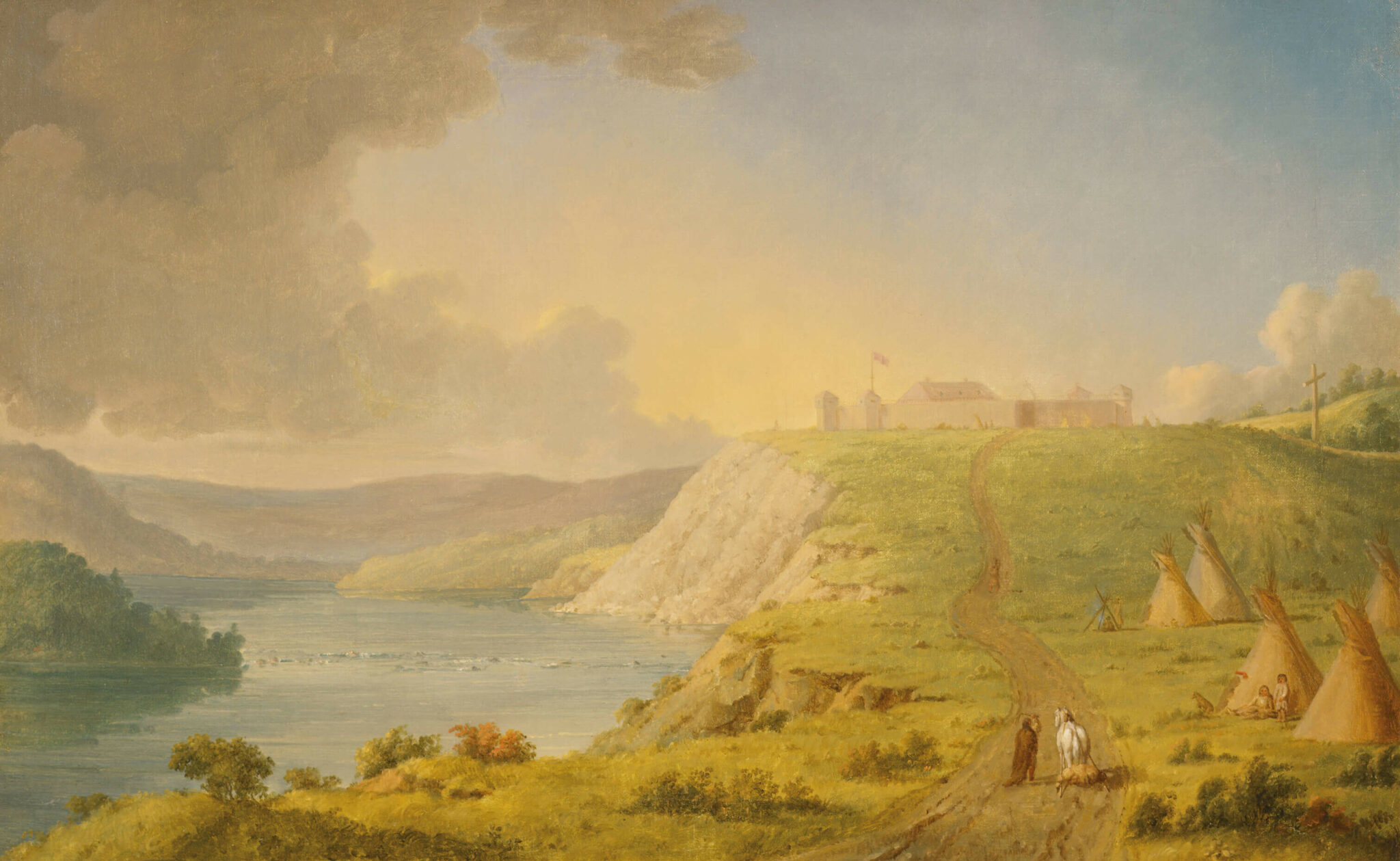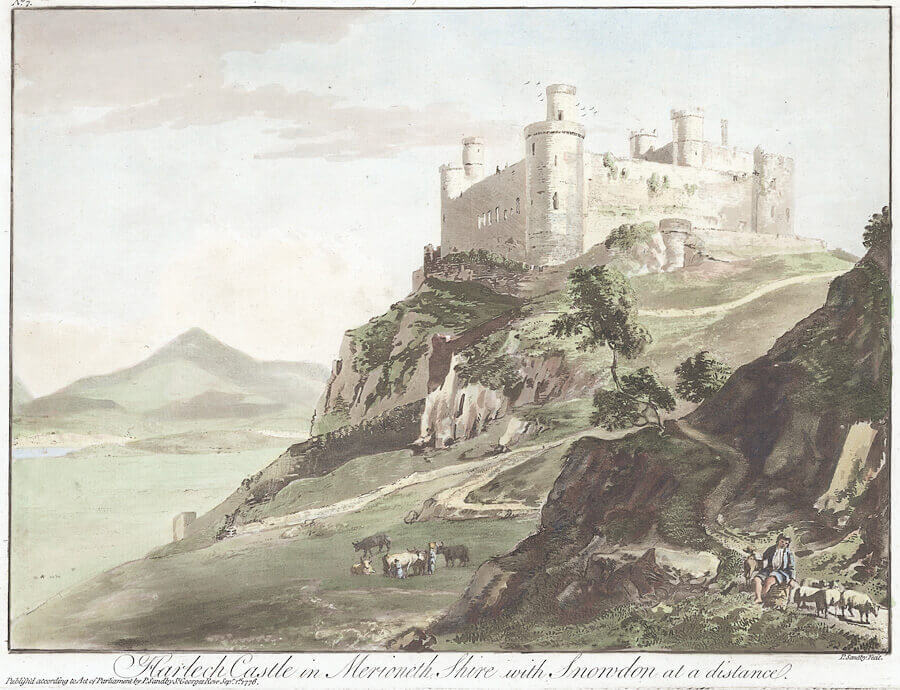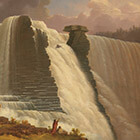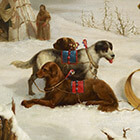Fort Edmonton c. 1849–56

Paul Kane, Fort Edmonton, Hudson’s Bay Company; Plains Cree, Assiniboine, c. 1849–56
Oil on canvas, 43 x 71 cm
Royal Ontario Museum, Toronto
If Kane’s documentary impulses were satisfied by drawing from nature freely, or by using a camera lucida, the popularity of the picturesque would nevertheless have encouraged him to approach and view the empirical world in a certain way. Fort Edmonton demonstrates Kane’s use of the picturesque style in which elevated viewpoints and sinuous land formations allow the viewer to “travel” through the image.

Although Kane spent extended periods at Hudson’s Bay Company (HBC) posts, there are no pictorial records of the interior of the forts. As the art historian J. Russell Harper notes, the artist’s panoramic views of the company’s presence in the landscape reinforce the sense of its empire. With its palisades and corner towers, and its situation on a promontory overlooking the North Saskatchewan River, Fort Edmonton must have seemed to Kane the New World equivalent to an Old World castle such as Harlech in North Wales, which is similarly situated on a rock overlooking water. Kane in his early days had copied a print (as yet unidentified) of Harlech Castle.
Kane made two pencil sketches of the fort as seen from a distance: one from the southeast and one from the south. For this oil painting, Kane chose the view from the south, in which the fort is approached by a path running alongside the river. Here Kane was confronted by a scene with two parallel foci: the river extending into the distance on the left and the path culminating in the fort on the right. Kane’s challenge was to resolve the split focus into a picturesque view. This he did by incorporating clouds into the upper left quadrant to create a sweeping “S” that moves the viewer’s eye across the foreground, onto the promontory, creating contact with the horizon and into the sky and distance.
Current understandings of the picturesque often situate it within the framework of an imperialist ideology. If Fort Edmonton is looked at through this lens, then Kane’s recognition of the economic relationship between empire and colony can also be seen in his inclusion of the fort, the teepees, and the river that was so important to the fur trade—elements included in both his sketches and his preparatory drawings.

 About the Author
About the Author
 More Online Art Books
More Online Art Books
 Acknowledgements
Acknowledgements